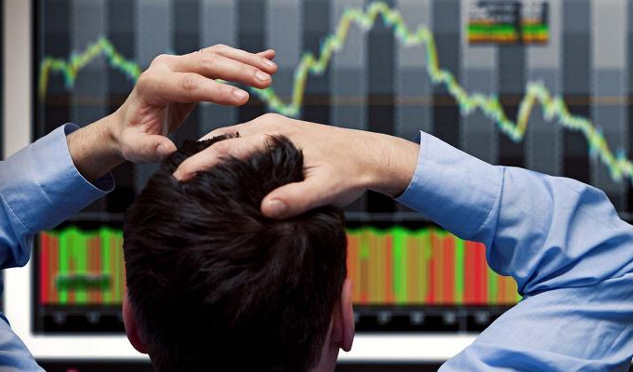
In This Article
- Why global boycotts of U.S. products are on the rise
- How economic retaliation works in a globalized market
- Historical echoes: When empires lost influence through economic isolation
- The psychological shift fueling consumer activism
- Can this silent protest actually reshape U.S. foreign and domestic policy?
What Happens If the World Boycotts America?
by Robert Jennings, InnerSelf.comBoycotts aren’t new. From Gandhi’s salt march to the anti-apartheid movement, economic resistance has always been a powerful lever. When people feel powerless at the ballot box or silenced in the streets, they often reach for their wallets—not to spend—but to withhold. A boycott says, “You don’t get my money until you get your act together.” It’s not just protest. It’s pressure—strategic, personal, and increasingly global.
But unlike those historical flashpoints, the modern U.S. boycott isn’t driven by one atrocity—a slow-burning pattern of disillusionment drives it. War without justification. Trade policy that favors billionaires. Climate inaction dressed up as patriotism. Cultural exports that scream arrogance instead of empathy. People aren’t staging marches. They’re quietly unsubscribing from the American brand. Not traveling. Not buying. Not cheering. And that silence is beginning to speak louder than any slogan on a cardboard sign.
Economic Retaliation in the Age of Global Supply Chains
Once upon a time, the United States was the engine of the global economy. Now, it's more like a badly tuned V8 sputtering on cheap gas and corporate tax cuts. If international consumers and tourists start pulling away en masse, U.S. corporations will feel it first. Apple won’t sell fewer iPhones tomorrow, but chip away at brand loyalty abroad and you hit long-term margins. Walmart will still be cheap—but its global image takes a hit when America is seen as a pariah.
Let’s be clear: tourism matters. In 2019, before the pandemic, nearly 80 million foreign tourists visited the U.S., pumping hundreds of billions into local economies. Now, imagine that number cut in half—not because of a virus, but because the world no longer feels safe, welcome, or morally aligned with U.S. values. That’s not just economic pain—it’s reputational collapse.
Historical Echoes: When Empires Fade
Rome didn’t fall in a day, and neither will the U.S. But when former allies stop showing up to your parties, you're already halfway to irrelevance. In the 20th century, British imperial decline was marked not by dramatic collapse, but by slow disengagement. The pound lost reserve currency status. Colonies became republics. Foreign students stopped flocking to Oxford. The story rhymes.
Today, the dollar is still king—but central banks are eyeing alternatives. China and Brazil have started trading in yuan. Saudi Arabia is hedging its oil bets. It doesn’t take a crystal ball to see that if enough countries start treating America as optional, it becomes less central and more peripheral. That’s the economic equivalent of being ghosted on the world stage.
The Psychology Behind the Boycott
Boycotts aren’t always about dollars. They're about dignity. Consumers today don’t just want good products—they want good stories behind them. And America’s story is starting to feel like a dystopian rerun. School shootings. Billionaires launching vanity rockets. A health system that costs more but delivers less. People around the world are tired of paying into that illusion.
This isn’t anti-Americanism. It’s post-Americanism—a recognition that the American experiment may no longer be worth subsidizing with tourist dollars, brand loyalty, or blind admiration. And once that psychological shift happens, it’s hard to reverse. Because unlike economic contracts, emotional disillusionment has no expiration date.
When the World Stops Buying, the U.S. Has to Rethink
So what happens next? Do American policymakers notice? Maybe. But probably not right away. Corporate lobbyists will scream first. Tourism boards will panic. Airlines will beg for subsidies. Only when those with influence start losing money will the message hit Washington: America doesn’t get to misbehave forever without consequence.
But there’s a deeper question here: can a boycott really change a nation’s behavior? History says yes. South Africa’s apartheid regime buckled under international isolation. France reconsidered its nuclear testing after Pacific protests. Even the U.S. has changed course when the economic pain got too real—ask any tobacco executive after global health campaigns kicked in.
The key isn’t just economic pressure—it’s cultural reorientation. When Americans themselves begin to ask why the world is walking away, the real transformation begins. Not through shame, but through reflection. Not through coercion, but through choice.
Even the “Safest” Bet Is Getting Dumped
This past week, something remarkable—and quietly terrifying—happened. Foreign central banks began dumping U.S. Treasury bonds. Let that sink in. For decades, U.S. debt was considered the safest place on earth to park money. Wars could rage, and economies could wobble, but Treasuries were the last redoubt of trust. Now? Not so much.
Japan, China, and several other major holders trimmed their portfolios, sending a message louder than any protest: they’re losing faith. Not in America’s ability to pay its debts—Uncle Sam has a printing press, after all—but in its political sanity. When Congress flirts with default for sport, and a former president calls for vengeance rather than diplomacy, what self-respecting finance minister wants to tie their nation’s future to that mess?
This isn’t just bookkeeping. When trust in U.S. debt erodes, it’s the beginning of financial decoupling. The dollar doesn’t die overnight, but it gets demoted. Slowly. Painfully. And with every bond dumped, the message echoes: America’s not the anchor anymore. It’s the risk.
This Isn’t Just About Products—It’s About Identity
The growing boycott of U.S. goods and travel isn't just about trade deficits or tourism stats. It’s about what kind of country America wants to be. The world is holding up a mirror, and it's not flattering. Do we continue down the path of hubris, exceptionalism, and profit-at-any-cost? Or do we finally listen—not just to our citizens, but to our global neighbors?
Because here’s the part no one in Washington wants to admit: the world isn’t waiting around. As the U.S. retreats from leadership, distracted by its own culture wars and billionaire reality shows, others are stepping in. Russia is flexing military muscle and exporting chaos. Iran is building regional alliances with growing confidence. But it’s China—the long-game player—that’s making the most decisive moves. Infrastructure deals, trade pacts, digital networks—Beijing is stitching together a new world order while America is busy unraveling its old one.
That vacuum of credibility, left behind by endless war, broken promises, and economic bullying, is being filled not with democratic ideals but with calculated authoritarian influence. And while we might scoff at the idea of the “Chinese century,” the reality is that a century gets built one quiet, deliberate step at a time—usually while the former leader is busy navel-gazing.
We’re no longer the center of the universe. And maybe we never were. But we can still be a part of a better one—if we stop shouting and start listening. The boycott isn’t just a warning. It’s an invitation. To change course. To grow up. To lead by example, not by force. Because if we don’t, someone else already is.
About the Author
 Robert Jennings is the co-publisher of InnerSelf.com, a platform dedicated to empowering individuals and fostering a more connected, equitable world. A veteran of the U.S. Marine Corps and the U.S. Army, Robert draws on his diverse life experiences, from working in real estate and construction to building InnerSelf with his wife, Marie T. Russell, to bring a practical, grounded perspective to life’s challenges. Founded in 1996, InnerSelf.com shares insights to help people make informed, meaningful choices for themselves and the planet. More than 30 years later, InnerSelf continues to inspire clarity and empowerment.
Robert Jennings is the co-publisher of InnerSelf.com, a platform dedicated to empowering individuals and fostering a more connected, equitable world. A veteran of the U.S. Marine Corps and the U.S. Army, Robert draws on his diverse life experiences, from working in real estate and construction to building InnerSelf with his wife, Marie T. Russell, to bring a practical, grounded perspective to life’s challenges. Founded in 1996, InnerSelf.com shares insights to help people make informed, meaningful choices for themselves and the planet. More than 30 years later, InnerSelf continues to inspire clarity and empowerment.
Creative Commons 4.0
This article is licensed under a Creative Commons Attribution-Share Alike 4.0 License. Attribute the author Robert Jennings, InnerSelf.com. Link back to the article This article originally appeared on InnerSelf.com
Recommended books:
Capital in the Twenty-First Century
by Thomas Piketty. (Translated by Arthur Goldhammer)
 In Capital in the Twenty-First Century, Thomas Piketty analyzes a unique collection of data from twenty countries, ranging as far back as the eighteenth century, to uncover key economic and social patterns. But economic trends are not acts of God. Political action has curbed dangerous inequalities in the past, says Thomas Piketty, and may do so again. A work of extraordinary ambition, originality, and rigor, Capital in the Twenty-First Century reorients our understanding of economic history and confronts us with sobering lessons for today. His findings will transform debate and set the agenda for the next generation of thought about wealth and inequality.
In Capital in the Twenty-First Century, Thomas Piketty analyzes a unique collection of data from twenty countries, ranging as far back as the eighteenth century, to uncover key economic and social patterns. But economic trends are not acts of God. Political action has curbed dangerous inequalities in the past, says Thomas Piketty, and may do so again. A work of extraordinary ambition, originality, and rigor, Capital in the Twenty-First Century reorients our understanding of economic history and confronts us with sobering lessons for today. His findings will transform debate and set the agenda for the next generation of thought about wealth and inequality.
Click here for more info and/or to order this book on Amazon.
Nature's Fortune: How Business and Society Thrive by Investing in Nature
by Mark R. Tercek and Jonathan S. Adams.
 What is nature worth? The answer to this question—which traditionally has been framed in environmental terms—is revolutionizing the way we do business. In Nature’s Fortune, Mark Tercek, CEO of The Nature Conservancy and former investment banker, and science writer Jonathan Adams argue that nature is not only the foundation of human well-being, but also the smartest commercial investment any business or government can make. The forests, floodplains, and oyster reefs often seen simply as raw materials or as obstacles to be cleared in the name of progress are, in fact as important to our future prosperity as technology or law or business innovation. Nature’s Fortune offers an essential guide to the world’s economic—and environmental—well-being.
What is nature worth? The answer to this question—which traditionally has been framed in environmental terms—is revolutionizing the way we do business. In Nature’s Fortune, Mark Tercek, CEO of The Nature Conservancy and former investment banker, and science writer Jonathan Adams argue that nature is not only the foundation of human well-being, but also the smartest commercial investment any business or government can make. The forests, floodplains, and oyster reefs often seen simply as raw materials or as obstacles to be cleared in the name of progress are, in fact as important to our future prosperity as technology or law or business innovation. Nature’s Fortune offers an essential guide to the world’s economic—and environmental—well-being.
Click here for more info and/or to order this book on Amazon.
Beyond Outrage: What has gone wrong with our economy and our democracy, and how to fix it -- by Robert B. Reich
 In this timely book, Robert B. Reich argues that nothing good happens in Washington unless citizens are energized and organized to make sure Washington acts in the public good. The first step is to see the big picture. Beyond Outrage connects the dots, showing why the increasing share of income and wealth going to the top has hobbled jobs and growth for everyone else, undermining our democracy; caused Americans to become increasingly cynical about public life; and turned many Americans against one another. He also explains why the proposals of the “regressive right” are dead wrong and provides a clear roadmap of what must be done instead. Here’s a plan for action for everyone who cares about the future of America.
In this timely book, Robert B. Reich argues that nothing good happens in Washington unless citizens are energized and organized to make sure Washington acts in the public good. The first step is to see the big picture. Beyond Outrage connects the dots, showing why the increasing share of income and wealth going to the top has hobbled jobs and growth for everyone else, undermining our democracy; caused Americans to become increasingly cynical about public life; and turned many Americans against one another. He also explains why the proposals of the “regressive right” are dead wrong and provides a clear roadmap of what must be done instead. Here’s a plan for action for everyone who cares about the future of America.
Click here for more info or to order this book on Amazon.
This Changes Everything: Occupy Wall Street and the 99% Movement
by Sarah van Gelder and staff of YES! Magazine.
 This Changes Everything shows how the Occupy movement is shifting the way people view themselves and the world, the kind of society they believe is possible, and their own involvement in creating a society that works for the 99% rather than just the 1%. Attempts to pigeonhole this decentralized, fast-evolving movement have led to confusion and misperception. In this volume, the editors of YES! Magazine bring together voices from inside and outside the protests to convey the issues, possibilities, and personalities associated with the Occupy Wall Street movement. This book features contributions from Naomi Klein, David Korten, Rebecca Solnit, Ralph Nader, and others, as well as Occupy activists who were there from the beginning.
This Changes Everything shows how the Occupy movement is shifting the way people view themselves and the world, the kind of society they believe is possible, and their own involvement in creating a society that works for the 99% rather than just the 1%. Attempts to pigeonhole this decentralized, fast-evolving movement have led to confusion and misperception. In this volume, the editors of YES! Magazine bring together voices from inside and outside the protests to convey the issues, possibilities, and personalities associated with the Occupy Wall Street movement. This book features contributions from Naomi Klein, David Korten, Rebecca Solnit, Ralph Nader, and others, as well as Occupy activists who were there from the beginning.
Click here for more info and/or to order this book on Amazon.
Article Recap
As more people worldwide embrace a US boycott and economic retaliation, the consequences ripple beyond dollars—shaking global perceptions, historic alliances, and America's self-image. This movement could mark the beginning of a post-American world, one shaped not by dominance, but by interdependence and accountability.
#USboycott #economicretaliation #globalactivism #tourismcollapse #brandAmerica #boycottswork



